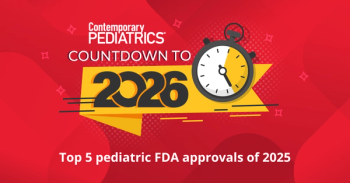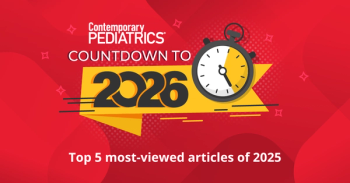
CDC removes 5-day COVID-19 isolation guidelines
Guidance now aligns with isolation recommendations for influenza and other respiratory illnesses.
The Centers for Disease Control and Prevention (CDC) has new guidance regarding the isolation timeframe following a positive COVID-19 test, revealing individuals no longer need to isolate for 5 days.1
The updated guidance states individuals who have tested positive for COVID-19 can go back to normal activities when symptoms are getting better overall and there has been no fever for at least 24 hours.2
The guidance recommends "added precaution"for the next 5 days after symptom improvement and loss of fever, such as improved hygiene, physical distancing, masks, and testing.2
The updated guidance aligns with public health advice for
"This recommendation has been in the works for a while now," said Tina Tan, MD, FAAP, FIDSA, FPIDS, professor of pediatrics, Feinberg School of Medicine, Northwestern University; pediatric infectious diseases attending, Ann & Robert H. Lurie Children's Hospital of Chicago.
"I think that it is probably wise to put the recommendations for COVID-19 in line with other respiratory viruses. We know that people with COVID-19 may be contagious for up to 10 days," added Tan. "This is compared to [respiratory syncytial virus] RSV, where the period of contagiousness is 3 to 8 days, and influenza, where the period of contagiousness is 5 to 7 days. Other viruses such as parainfluenza virus 3 may usually be shed for 3 to 10 days after infection, however, can be shed for as long as 3 to 4 weeks after infection. COVID-19 has been singled out since the pandemic and I am sure that most people were not isolating for the recommended time period after they were infected."
According to NBC News, the change in guidance stems from decreases in severe outcomes of COVID-19 infection since the start of the pandemic, with an understanding that people may not be testing themselves for the virus.1
Now that guidelines have been removed, other areas of prevention once again come to the forefront.
"These recommendations are for persons of any age, but like any other febrile illness, infants should not go back to daycare and children should not go back to school until their symptoms have resolved," said Tan. "This really emphasizes the importance of handwashing, cough/sneeze etiquette, and other commonsense measures to prevent transmission of an illness to others. Also, people should seriously consider getting
The updated guidance is not applicable to health care settings, which is generally 10 days of isolation.1,2
“Today’s announcement reflects the progress we have made in protecting against severe illness from COVID-19," said Mandy Cohen, director, CDC, in a press release. "However, we still must use the commonsense solutions we know work to protect ourselves and others from serious illness from respiratory viruses—this includes vaccination, treatment, and staying home when we get sick.”3
References:
1. Edwards E. CDC updates COVID isolation guidelines for people who test positive. NBC. March 1, 2024. Accessed March 1, 2024. https://www.nbcnews.com/health/health-news/covid-isolation-guidelines-cdc-positive-cases-updated-rcna141317
2. Preventing spread of respiratory viruses when you're sick. Respiratory illnesses - Centers for Disease Control and Prevention. Updated March 1, 2024. Accessed March 1, 2024. https://www.cdc.gov/respiratory-viruses/prevention/precautions-when-sick.html
3. CDC updates and simplifies respiratory virus recommendations. Centers for Disease Control and Prevention. Press release. March 1, 2024. Accessed March 1, 2024. https://www.cdc.gov/media/releases/2024/p0301-respiratory-virus.html?ACSTrackingID=USCDC_1_3-DM123769&ACSTrackingLabel=CDC%20Newsroom%3A%20Week%20In%20Review%20-%2003%2F01%2F2024&deliveryName=USCDC_1_3-DM123769
Newsletter
Access practical, evidence-based guidance to support better care for our youngest patients. Join our email list for the latest clinical updates.








